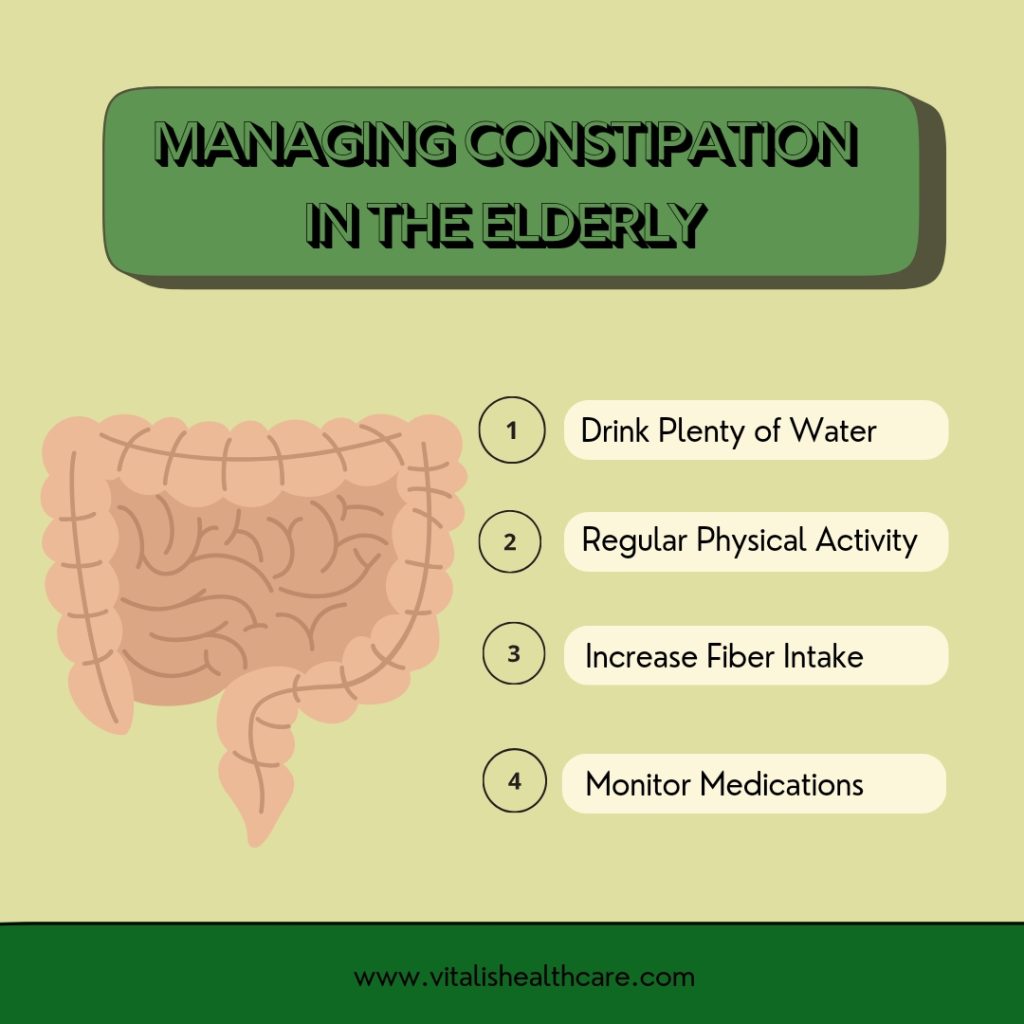Every year, on November 30th, the world observes International Day of Constipation, a day dedicated to raising awareness about digestive health and the importance of preventing and managing constipation. While constipation can affect anyone, it becomes a more common and serious concern as we age. For elderly individuals, constipation can be a source of discomfort, frustration, and even serious health complications.
Constipation is defined as having fewer than three bowel movements per week, along with difficulty passing stools. In older adults, this condition can occur for a variety of reasons, including:
- Slower digestion: As people age, the digestive system naturally slows down, making it harder for the body to process food and eliminate waste.
- Reduced physical activity: Lack of movement or exercise can contribute to slower bowel function.
- Medications: Certain medications commonly prescribed to older adults, such as painkillers, blood pressure medications, and antidepressants, can cause constipation as a side effect.
- Dehydration: Older adults may not drink enough fluids, which can lead to harder stools and difficulty passing them.
- Dietary changes: A lack of fiber in the diet, which is common among the elderly, can also contribute to constipation.
According to the National Institute on Aging, up to 40% of older adults experience constipation regularly, and this can lead to more severe health problems if not addressed properly.
How Constipation Impacts the Elderly
For elderly individuals, constipation is more than just an occasional discomfort, it can lead to:
- Pain and discomfort: Straining to pass stools can cause pain in the abdomen, back, and rectal area.
- Fecal impaction: If constipation is left untreated, it can result in fecal impaction, a condition where stool becomes hard and difficult to pass. This often requires medical intervention.
- Decreased appetite: Chronic constipation can cause bloating and a feeling of fullness, leading to a decreased desire to eat.
- Increased risk of falls: Straining to have a bowel movement can raise blood pressure and increase the risk of falls, especially in individuals with existing balance or mobility issues.
- Reduced quality of life: The discomfort, embarrassment, and social isolation that can come with constipation may lead to a reduced quality of life.
Practical Tips for Managing Constipation in the Elderly
Managing constipation in the elderly is crucial for improving their comfort, health, and well-being. Here are some practical tips to help manage and prevent constipation:
- Increase Fiber Intake: Fiber helps to add bulk and softness to stools, making them easier to pass. Older adults should aim to include fiber-rich foods in their diet, such as:
- Whole grains (brown rice, whole wheat bread, oats)
- Fruits (apples, pears, berries, prunes)
- Vegetables (broccoli, spinach, carrots)
- Legumes (beans, lentils, chickpeas)
The American Heart Association recommends that adults get about 25-38 grams of fiber per day, depending on age and gender. For many elderly individuals, adding fiber to their diet can significantly improve bowel movements.
- Drink Plenty of Water: Dehydration is a common cause of constipation, as it can lead to harder stools that are difficult to pass. Encourage elderly individuals to drink 6-8 cups of water daily, or more if they are taking medications that contribute to dehydration. Including fluids like herbal teas or broths can also help with hydration.
- Encourage Regular Physical Activity: Physical activity stimulates digestion and helps move food through the digestive tract. Even simple activities like walking, stretching, or light yoga can have a positive impact on digestive health. The National Institutes of Health (NIH) recommends that elderly adults engage in at least 150 minutes of moderate-intensity exercise per week. If this isn’t feasible, even small amounts of movement can make a difference.
- Establish a Routine: Encouraging a regular schedule for meals and bathroom visits can help train the digestive system. Suggest that elderly individuals try to have a bowel movement at the same time each day, such as after a meal, when the digestive system is naturally more active.
- Monitor Medications: Many medications can contribute to constipation, including pain relievers, iron supplements, and certain blood pressure drugs. If constipation becomes a frequent issue, review the person’s medication list with their healthcare provider to see if adjustments or alternatives are needed.
Managing constipation is essential for maintaining digestive health and overall well-being in elderly individuals. By incorporating practical changes—such as increasing fiber intake, staying hydrated, encouraging regular exercise, and using medications cautiously, home health care providers can play an important role in helping older adults live comfortably and independently.
As we observe International Day of Constipation, let’s focus on making sure that elderly individuals have the tools and support they need to manage their digestive health and lead a healthy, active life.
CONTACT US
At Vitalis Healthcare, we prioritize continuous provision of services that promote autonomy and independence. For us, it is about understanding that each person’s needs and abilities are unique and creating a care plan that reflects that.
We are dedicated to providing our patients with quality home caregiving services and our team of registered nurses and caregivers are effectively trained to cater for the needs of you or your loved ones.
If you are in need of our services, contact us today to get matched with the best services for your needs.
Phone Number: 240.716.6874
Email: info@vitalishealthcare.com
Location: 8757 Georgia Avenue Suite 440 Silver Spring, MD 20910


